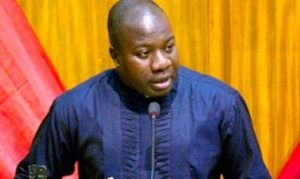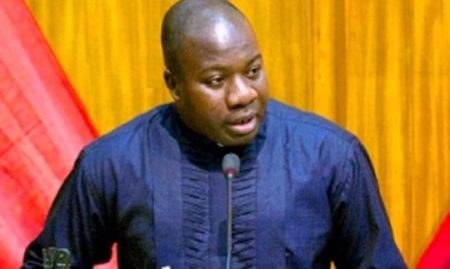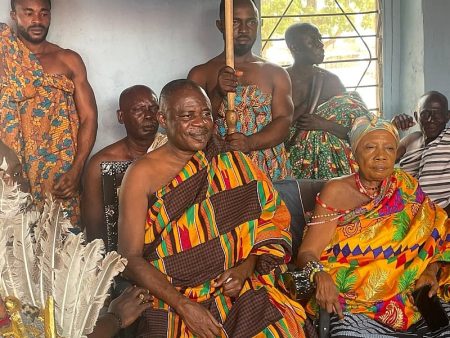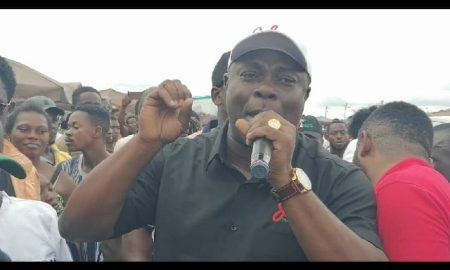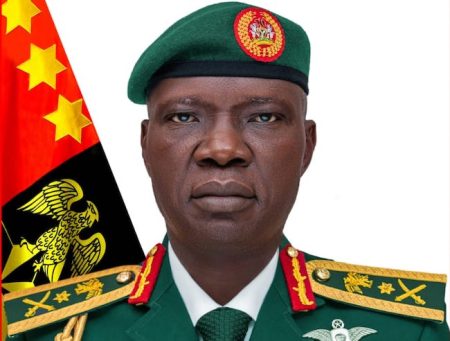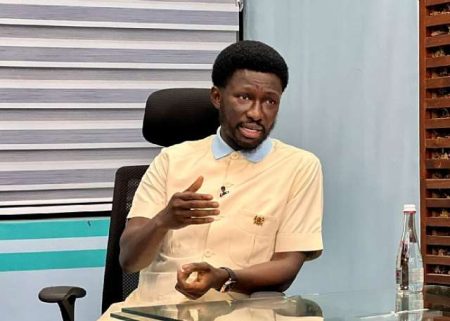In the lead-up to the December 7 elections in Ghana, John Dramani Mahama, the flagbearer for the National Democratic Congress (NDC), has articulated a belief that President Nana Addo Dankwa Akufo-Addo of the New Patriotic Party (NPP) is preparing for a loss. During a rally in Biakoye within the Oti Region on November 4, 2024, Mahama interpreted recent comments from the President as an acknowledgment of the NPP’s diminishing electoral chances. His remarks signal a potential shift in political power and reflect broader sentiments among voters regarding the ruling party’s performance.
Mr. Mahama’s statements emphasized the importance of a peaceful transition of power as articulated by President Akufo-Addo. He interpreted this as a readiness on the part of the incumbent to concede defeat should the NDC secure victory in the upcoming election. Mahama urged his supporters to vote for the NDC, promising to pursue accountability for alleged corruption, suggesting that the NPP’s leadership has failed in this regard. He specifically targeted Vice President Dr. Mahamudu Bawumia, asserting that he lacks the integrity to hold those accountable who have misappropriated state resources.
Additionally, Mahama highlighted President Akufo-Addo’s recent assurances to respect the results of the elections, framing them as not only a democratic obligation but also indicative of the NPP’s recognition of its potential electoral decline. By implying that the President is aware of the party’s weakened stance, Mahama aims to rally his supporters by fostering a sense of optimism for a change in governance. He firmly stated that the current administration’s actions and promises signal their understanding that the NDP is likely to claim victory.
The NDC leader’s narrative framed the upcoming election as a critical juncture for Ghana, with the stakes involving the integrity of governance and public trust. Mahama’s rhetoric positioned the NDC as a party of accountability, contrasting it with the NPP’s perceived failures. By emphasizing that he would actively pursue those guilty of corruption, he sought to instill hope among voters disillusioned with the current administration’s governance. This discourse serves to galvanize support for the NDC, strengthening their claims to leadership.
As the election date approaches, it becomes increasingly vital for both parties to solidify their platforms and voter bases. While Mahama’s comments reflect confidence in the NDC’s potential to reclaim power, they also underscore the growing tensions within Ghanaian politics as voters grapple with pressing issues. The impending election will not only determine the future leadership of the country but also signify a referendum on the months of governance under the NPP and its handling of various socio-economic challenges facing the Ghanaian populace.
In summary, Mahama’s assertions during the rally in Biakoye illustrate a strategic approach aimed at affirming the NDC’s commitment to accountability while highlighting perceived weaknesses within the NPP. By framing the upcoming elections as not merely a contest for power but a moral imperative, he seeks to inspire collective action among his supporters. As Ghana approaches a pivotal moment in its electoral history, the dialogue established by both Mahama and Akufo-Addo will likely shape the political landscape for years to come.


